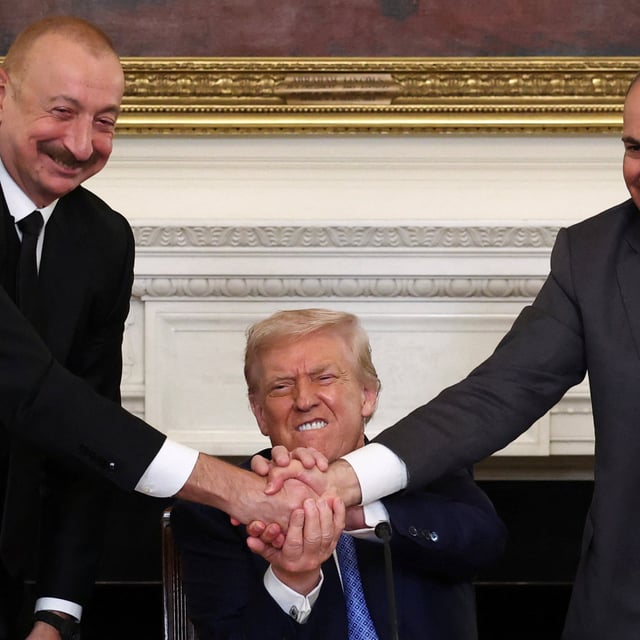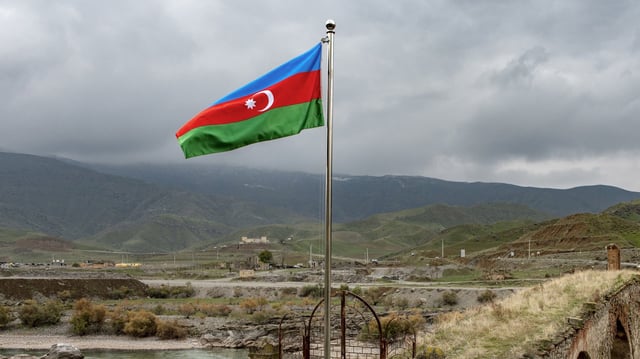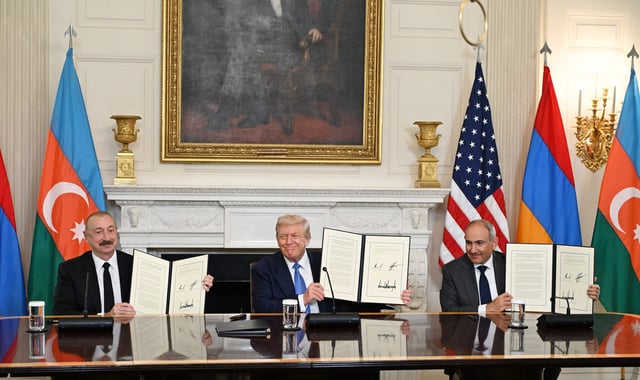Overview
- President Trump hosted Prime Minister Nikol Pashinyan and President Ilham Aliyev on August 8 to initial a joint declaration committing both sides to end hostilities and normalize relations.
- The agreement is a memorandum of understanding rather than a binding treaty, leaving major obligations—from territorial withdrawals to constitutional amendments—unsettled.
- It introduces the Trump Route for International Peace and Prosperity (TRIPP), granting the U.S. reported leasing and development rights over a corridor through southern Armenia, but offers no timeline or operational plan.
- Russian and Iranian officials have vowed to oppose or undermine a U.S.-managed corridor, warning of regional security risks and rejecting increased American influence.
- Armenia’s domestic political landscape remains fraught, with opposition leaders decrying the pact as capitulation and future implementation hinging on referenda and parliamentary approval.



